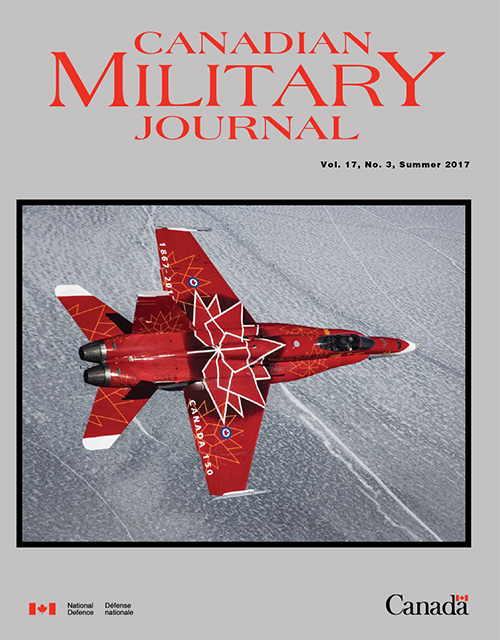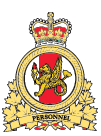Letter to the Editor
For more information on accessing this file, please visit our help page.

Editor’s Note
Distinguished Canadian scientist and author Doctor Kim Krenz has been a staunch supporter and friend of the Canadian Military Journal for many years. On 17 April 2019, I received the following Letter to the Editor from him, and marvelled yet again at his trademark candour and clarity. Kim will be 99 years young this June, and we, his friends and admirers at the journal want to take this opportunity to wish him a very happy birthday, and many more to follow. You rock, Kim!
~ Dave Bashow
17 April 2019
Behind the Headlines
by Kim Krenz, Ph.D
Warfare between opponent forces has always relied upon elements of stealth and surprise. In recent years, these elements have been expanded to include a wide range of aggressive and defensive techniques made possible by modern developments in the science of warfare. Russia, which in recent times has maintained a relatively low profile in international affairs, has been discovered to be a moving force on the world stage (somewhat to the surprise and consternation of the United States), and an agent behind several developments in techniques of world importance.
That activity, most immediately affecting the United States, has been the Russian interference in the relatively-recent presidential election. That interference has of course been clandestine, and its effects are still a matter of investigation, but its discovery has unsettled, to varying degrees, the American voting public.
President Trump, although something of an enthusiast in his treatment of Russia, maintains that his winning of the 2016 election had nothing to do with his Russian proclivities. Feelings are so strong in the matter that his activities are being formally investigated. It appears at this point that he may still be in trouble.
Meanwhile, it is a matter of great interest that the Canadian Military Journal (Vol. 17, No. 3 – Summer 2017) recently published an article by Major Andrew Duncan under the title “New Hybrid War or Old Dirty Tricks?” a study of recent developments in war technology attributable to the Russians. Major Duncan is a member of the Canadian Forces Intelligence Office in Washington, D.C., and is the Liaison Officer to the Defense Intelligence Agency. The United States, Great Britain, Canada and Australia are represented in the Agency.
The concept of a “Hybrid War” was introduced by the Russian Chief of the General Staff, General Valery Gerasimov, in a paper published in February 2013. The title of his paper was “The Value of Science is in the Foresight,” and it begins with the statement that wars are no longer formally declared, and having begun, they proceed in a new and ‘unfamiliar template.”
According to Gerasimov, the use of “mobile, mixed-type groups of forces” and intelligence and sophisticated command and control systems, avoiding frontal engagements, and using “asymmetrical actions” can nullify the enemy’s advantages in a conflict.
Gerasimov’s article has become the subject of intense debate, in Russia and elsewhere. It has special significance as a guidebook to the Russian campaign in the Ukraine. The actual term “Hybrid War” was defined in 2007 by Frank Hoffman, a former U.S. Marine Corps officer, as “…a full range of different modes of warfare that includes conventional warfare with irregular tactics and formations, including terrorist acts, coercion and disorder.”
The outcomes of this approach to war fighting can be seen in the recent struggle we have witnessed between Russia and the Ukraine, where local militias friendly to the Russians have been fighting for the invading forces. The tactics employed by the Russians provide an example of the application of “deep operations” theory, in which every aspect of the conflict, land, air, cyber, as well as conventional war fighting, has been used to achieve success. On the side of the Ukrainians, the fighting was invigorated with NATO assistance and military support of Ukrainian forces, as well as economic sanctions against the aggressors.
Who was it who said – and correctly in my view – “We live in interesting times”?







